Metals are versatile and essential, and they are used in many different ways. Steel is known for its strength, durability, and tensile strength, and it is essential for engineering and the manufacture of cars. Metals are nonrenewable resources because there is a finite amount, which makes recycling them very important. Fortunately, metals such as steel are 100% recyclable, and steel doesn’t lose any of its metallurgic properties in the recycling process.
What Are the Benefits of Metal Recycling?
The primary benefit of recycling metals is that they can be recycled an infinite number of times without losing the properties that make them so useful. In fact, steel is the most widely recycled material in the world, with about 90% of all steel being recycled at the end of its useful life. Paper is second, and nonferrous metals come in third. People who have metal objects that are no longer useful can take them to a Melbourne metal recycling center and often get paid cash for them.
Recycling metal has several important benefits, including the following:
- It saves energy: The bottom line is that it takes less energy to recycle metal than it does to harvest new ore to make a product. The metal does not need to go through the original part of the process; it simply needs to be melted down before being turned into a new product. Recycling metal uses 75% less energy than harvesting new metal, and there are no drawbacks to this process.
- It reduces emissions: Emissions are the result of carbon dioxide being sent out into the atmosphere. Reducing emissions helps to protect the environment.
- It conserves natural resources: Metals are nonrenewable resources, which means that there is a finite amount of the raw materials that make up metals. If new metal were made and used for each product, the earth would run out of iron. Recycling metals conserves these precious resources.
- It limits landfill growth: When anything is thrown away, it ends up in a landfill. Biodegradable items cause less harm, but items such as metals take a very long time to biodegrade, and they take up precious space. When metals are recycled, it cuts down on landfill waste.
- Economic benefits: Not only are there savings in terms of energy and natural resources, but recycling creates jobs and generates revenue. There are more materials available for projects because all metals can be recycled.
What Types of Metals Are There?
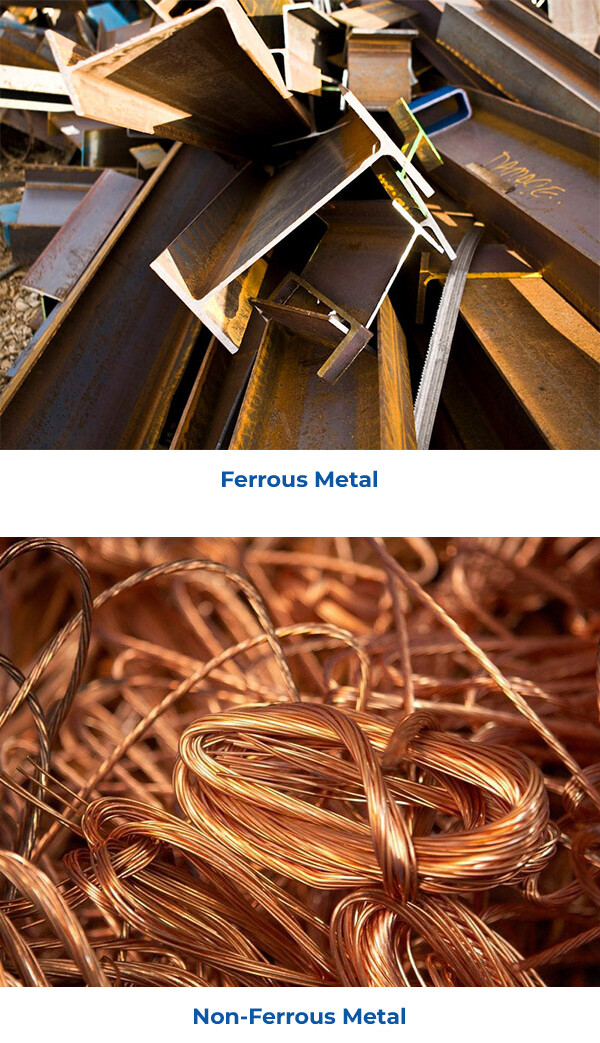
Ferrous metals include metals made with iron, such as steel, carbon steel, stainless steel, cast iron, and wrought iron. These metals are widely used in engineering projects and for construction of buildings or cars because they are so durable and tensile. They are strong enough to hold up a skyscraper, and they are able to be shaped without losing any of their strength.
Most ferrous metals are created with high amounts of carbon, which makes them susceptible to rust. The exceptions are wrought iron, which is a pure iron that doesn’t oxidise, and stainless steel, which is made up of 10% to 20% chromium. The chromium protects it from rusting.
Nonferrous metals include aluminium, copper, brass, nickel, tin, lead, and zinc, and they are not made with iron. They tend to be lighter and more malleable, and they are used where strength is needed without the weight. They are more resistant to corrosion, so they are often used in the medical industry, food industry, and in other situations where rust could be a factor.
What Is the Process for Recycling Metals?
People often make use of Melbourne metal recycling when products made of metal have reached the end of their useful life. There are metal recycling companies that simplify the entire process by providing this service. The main stages of this process are as follows:
- Collection: People or businesses can either drop their metals off or call a metal recycling company to pick them up for recycling. One of the differences between recycling metals and recycling other materials is that metals have a higher scrap value, and people actually get paid for recycling their metals. Either way, the first step is the collection of the metals that are ready to be recycled.
- Sorting: Once the metals are collected, they need to be sorted. A metal recycling company might use a large magnet to sort the metals, and others will sort the metals with their eyes. If someone is scrapping the metal, it is a good idea to sort the metals first.
- Processing/Shredding: In the processing stage, the metals are shredded. Metal recyclers will shred the metals into much smaller pieces to make the melting process easier. When they are shredded, it takes a lot less energy to melt them, and it is done more quickly.
- Melting: In the next stage, the metals are melted in a large furnace. Steel, for example, needs to be heated to more than 3,000 degrees before it will melt. The metals are sorted ahead of time because they will be melted in a furnace that is set up for the needs of that particular metal. Metals all have different melting points, so it is important that they are sorted ahead of time.
- Purification: This step usually employs electrolysis to make sure that the melted metals are free of any contaminants.
- Solidifying: The next stage is where the melted metals are taken to cool and solidify. They are formed into certain shapes, such as bars or sheets, and they will be ready to be used to produce new products.
- Transportation: Finally, the metal has been recycled, and it is ready to be transported so that it can be used in a new project.
What Does a Metal Recycling Company Do?
Metal recycling companies facilitate the entire process of getting metals recycled. While it is not too difficult for an individual to sell a few scrap metals to a metal recycler, often building projects have a significant amount of waste, or people want to clear out the old metals when they remodel their homes. A recycling company can be extremely helpful in these circumstances.
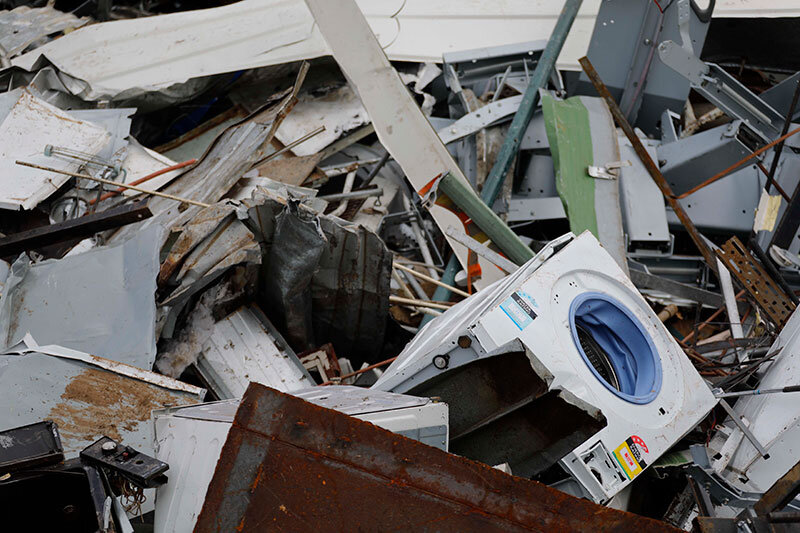
Domestic Service: Domestic service is provided by metal recycling companies for private individuals. If someone has an old refrigerator that is no longer working or if someone needs to have an old car hauled away, they can call a metal recycling company for help. Most of the time these companies will buy the scrap metals, and they can come and pick them up.
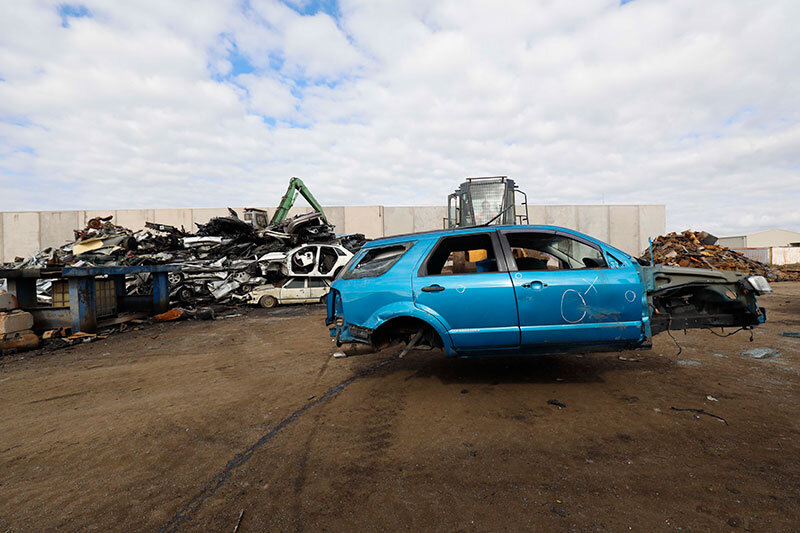
Car or Vehicle Recycling: Metal recycling companies are also helpful when a person or a company wants to recycle an old vehicle. Normally, these vehicles need to be smashed with a compactor before they are hauled off to be melted and turned into another object. Metal companies will have metal compactors, and they can come and compact and pick up the old vehicles that need to be recycled.
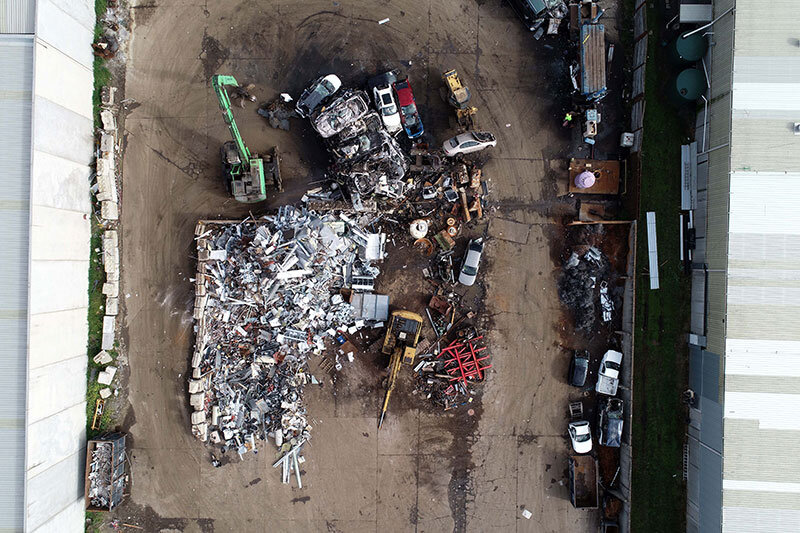
Site Property Services: Metal recycling companies also provide site property services. In these cases, they will go to a construction site to assist in the clean up. A metal recycling company will have a range of mobile equipment, including balers, car compactors, mobile shears, magnets, or grabs, and they can bring their equipment in and clear the site. The companies with better equipment will be able to bale and compact the scrap metals and load as much as four times the amount of metal onto a truck.
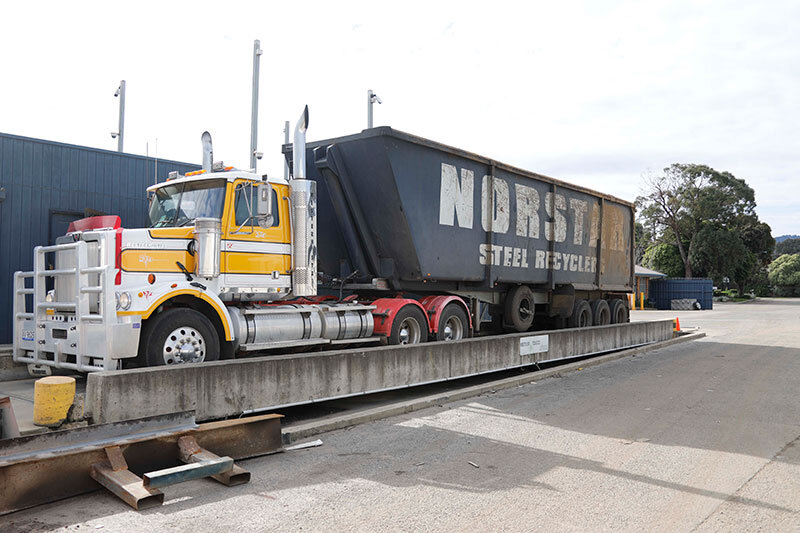
Bin Services: Metal recycling companies also offer scrap metal bin services to domestic and commercial clients. If someone needs to have a bin of any shape or size dropped off while they are working on a project, the metal recycling company will bring the bin and be ready to pick it up as soon as the client is ready.
Industrial and Commercial Services: The metal recycling company also provides industrial and commercial services. Scrap metal is often a by-product in many industries, and it is not the main focus of many businesses. The metal recycling company can help make and execute a plan to recycle the scraps. In fact, they have the capacity to manage all of a company’s metal recycling needs.
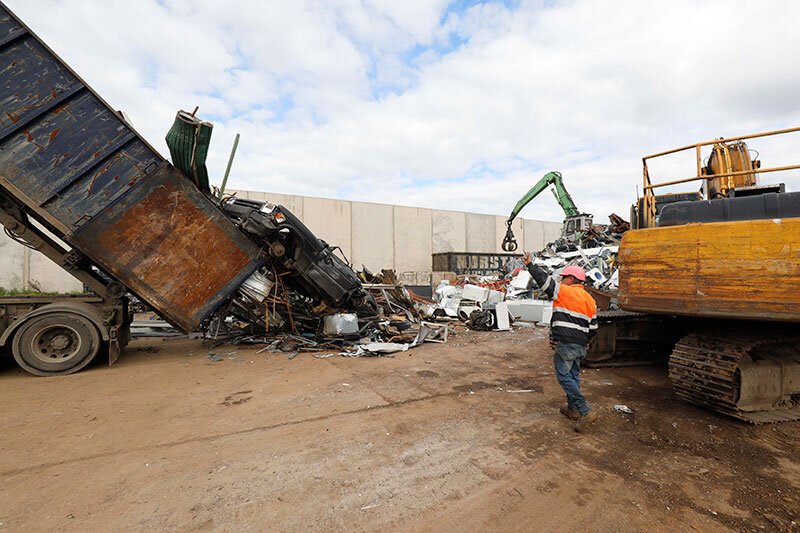
Council/Transfer Station Services: Metal recycling companies have long and extensive relationships with local, state, and national governments as well as privately owned tips and transfer stations. They can use these connections to ensure that anyone who needs scrap metal recycling has his or her needs met.
Examples of Metals That Should Be Recycled
All metals can and should be recycled whenever possible. Metal recycling companies make this process so simple because they are entirely devoted to facilitating this process.
Ferrous metals are all of those metals that have iron in them. Steel can be completely melted and repurposed without losing any of its properties. It can be done an infinite number of times, and this makes recycling steel especially important.
Examples of ferrous materials that should be recycled include the following:
- HMS (Heavy Melting Steel): HMS is most industrial or commercial scrap steel that is more than 6 mm thick. This includes items such as plates, beams, columns, channels, merchant bars, farm machinery, farm implements, metal stampings, and offcut.
- Pressing Steel: This type of steel includes most domestic scrap metal up to about 6 mm thick. It covers Whitegoods, such as refrigerators, washing machines, and other appliances, as well as roofing iron, hot water heaters, water tanks, and sheet metal offcuts.
- Car Bodies: This includes most vehicles both with and without their original wheels and interiors. Metal recycling companies will often buy vehicle components.
- Rail: This will include Railway and Tramway tracks of all types and sizes.
- Reo: Reo is any kind of reinforcing bars or mesh that is used within concrete on construction projects.
- Turnings: Turnings are what is left after drilling or shaping steel. This is also called Borings and Swarf.
- Manganese Steel: Manganese steel is a hardened non-magnetic steel that is used in the mining industry in cement mixers, rock crushers, and other high impact and abrasive environments.
- Cast Iron: Examples of this are cast iron bathtubs, machinery, pipe, and engine blocks.
No matter what kind of metals you have that you no longer need, they can be recycled, and you should include them in your recycling plan.
Final Words
Recycling metals is important to any industry or individual who has metal products that they no longer need. The process of harvesting iron to make new steel is intensive and uses a lot of energy. One of the amazing properties of steel is that it can be recycled by melting it down. It won’t lose any of its original properties, and this can be done over and over again.
There are many benefits to recycling metals, and metal recycling companies make the entire process simple. They can work with any individual or company to ensure that the metals are collected for recycling in the safest and most efficient way. They can drop scrap bins that can be filled and picked up at a later time, or they can send in specialized equipment to compact metals and prepare them for transport.
When a company or an individual makes a commitment to recycle any metals that they are no longer using, it is beneficial to the environment and it saves money. It reduces the amount of energy needed to make new products, and it prevents extra materials from being dumped into landfills where they will take many years to biodegrade. Choosing to recycle metals is easy because these specialised metal recycling companies will help make and execute a plan.
What are the benefits of metal recycling?
It saves energy, reduces emissions, conserves natural resources, reduces landfill growth and provides economic benefits.
What is a ferrous metal?
Ferrous metals are those that are made up of iron. Such as iron, steel, carbon steel, stainless steel, cast iron and wrought iron.
What is a nonferrous metal?
A metal that has negligable amounts of iron in it. Such as aluminium, copper, brass, nickel, tin, lead and zinc.
What ferrous metals can be recyled?
Heavy melting steel, pressing steel, car bodies, rail, reo, turnings, manganese steel and cast iron
